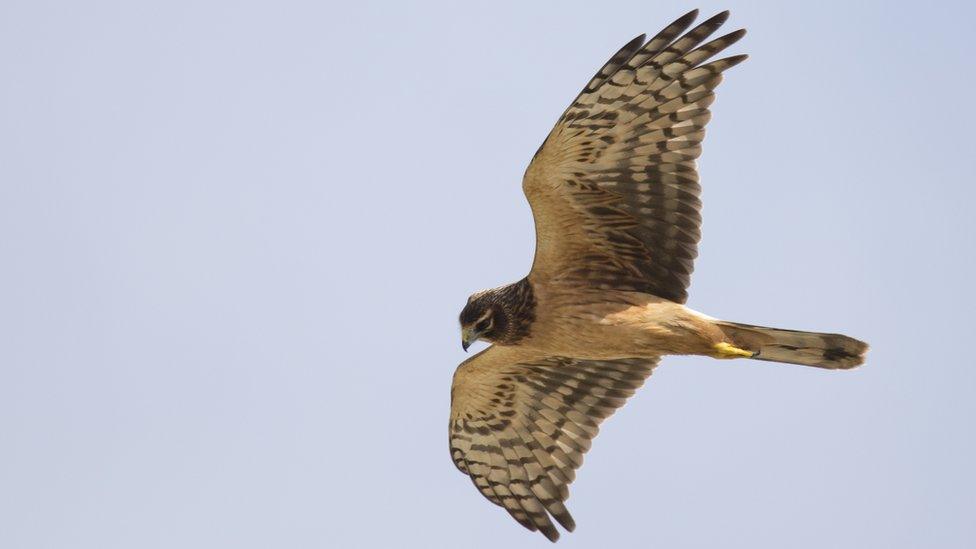Hen harriers disappear from grouse moors in northern England
- Published
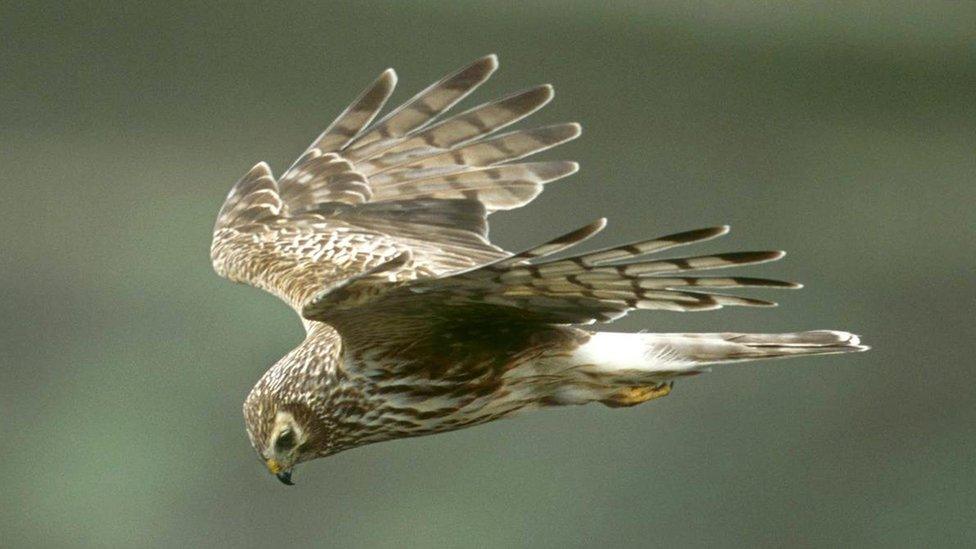
Hen harriers are on the red list of protected species
Three hen harriers have disappeared from private grouse moors, a conservation charity has said.
Their satellite location tags show they vanished from moors in the Yorkshire Dales, Northumberland and Cumbria.
The birds, which can eat grouse and their chicks, went missing between 9 and 15 August, close to the start of the shooting season.
The RSPB is calling for a licensing system "to act as a meaningful deterrent to raptor crime".
Chief executive Beccy Speight said it was the first time "so many hen harriers have gone missing in such a short space of time", all on driven grouse moors, external.
"If these magnificent birds are ever going to have a sustainable population in England this has to stop," she said.
"Productivity from nests means nothing if the birds don't survive."
The charity said the three birds were in addition to 21 reported missing in the 12 months to April.
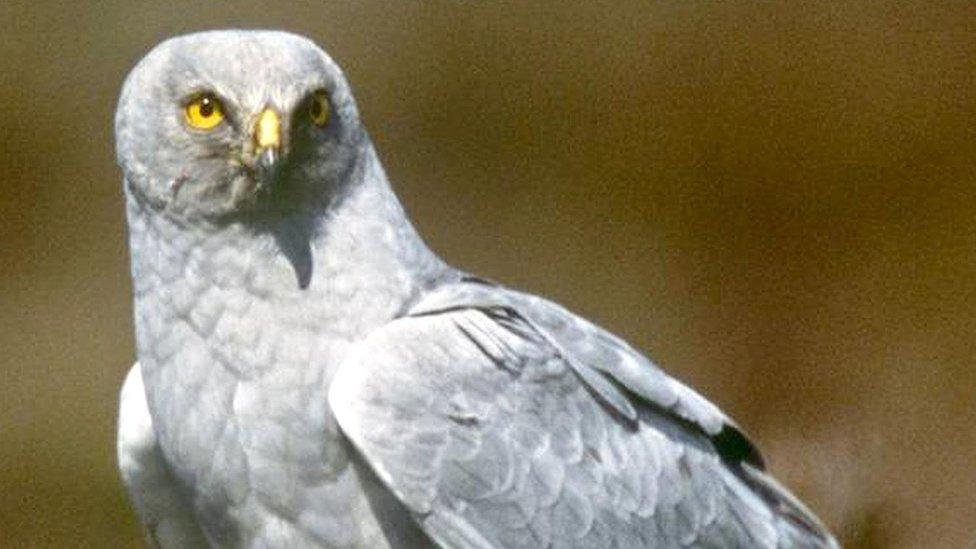
Hen Harriers eat small animals and birds
The numbers of red grouse are managed to be at their peak at the start of the shooting season on 12 August.
The missing birds last transmitted their locations from:
Westburnhope Moor near Hexham, in the North Pennines on 9 August
Mossdale Moor near Hawes, in the Yorkshire Dales on 11 August
Moorland at Birkdale Common near Kirkby Stephen, Cumbria on 15 August
The RSPB said nine other satellite-tagged hen harriers had vanished or been found dead near Birkdale Common since September 2020.
The birds are protected because of their low population numbers.
The charity said illegal killing was "the main factor limiting the recovery of hen harriers in the UK".
Licensing would address the problem while also "protecting the legitimate interests of those landowners who operate legally", the charity said.
It said all three incidents had been reported to the police and the National Wildlife Crime Unit.

Follow BBC North East & Cumbria on Twitter, external, Facebook, external and Instagram, external. Send your story ideas to northeastandcumbria@bbc.co.uk, external.
Related topics
- Published5 May 2023
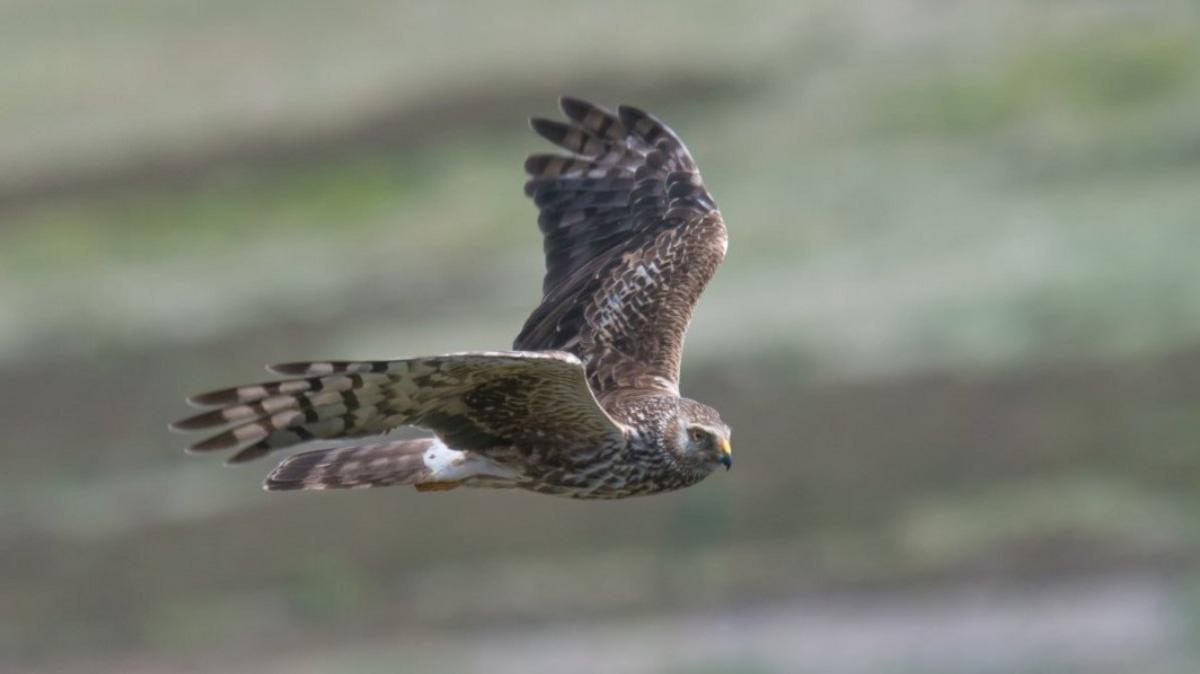
- Published26 August 2022
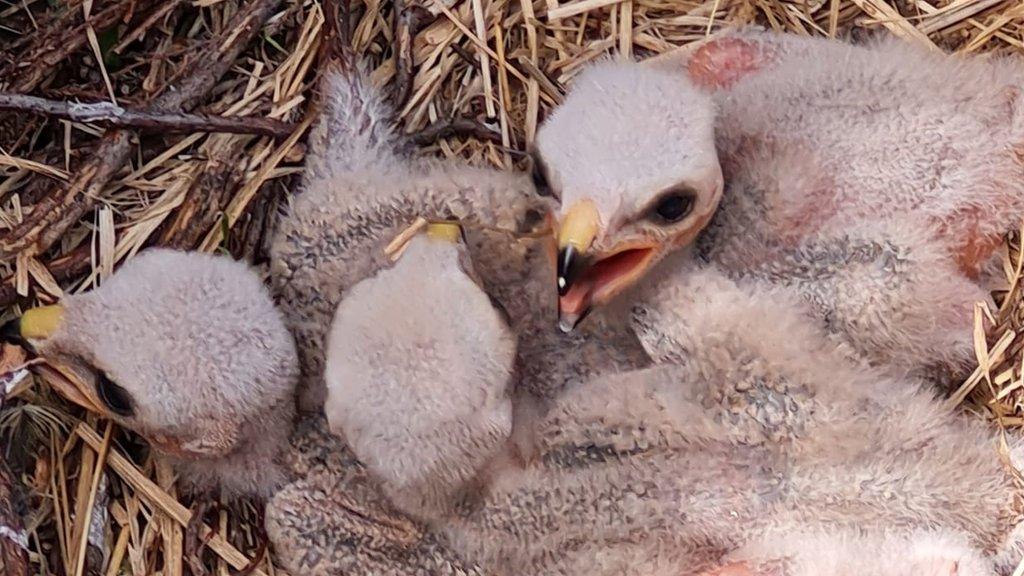
- Published15 July 2018
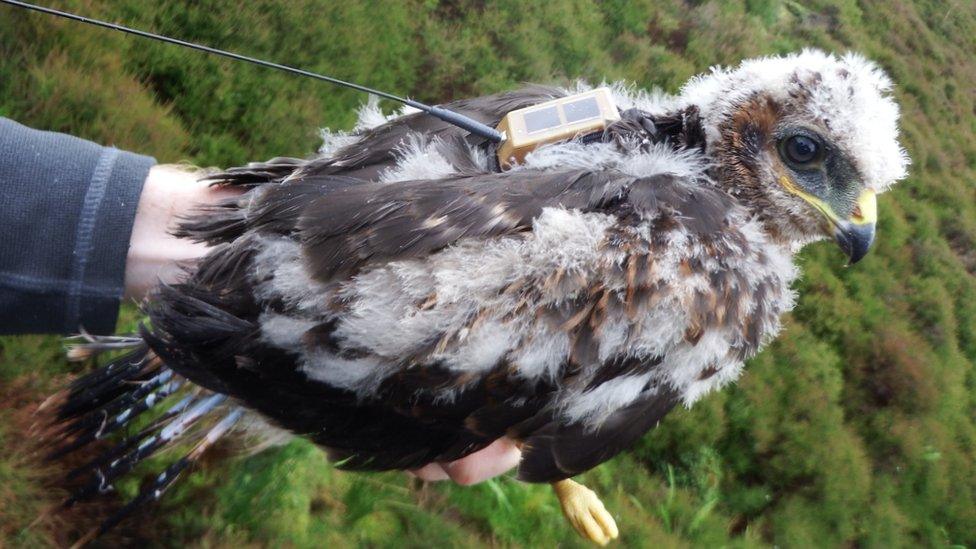
- Published22 November 2017
